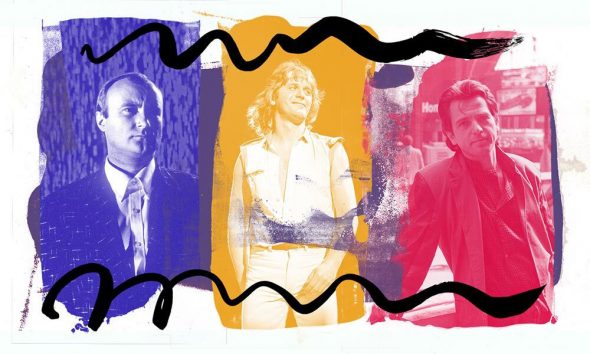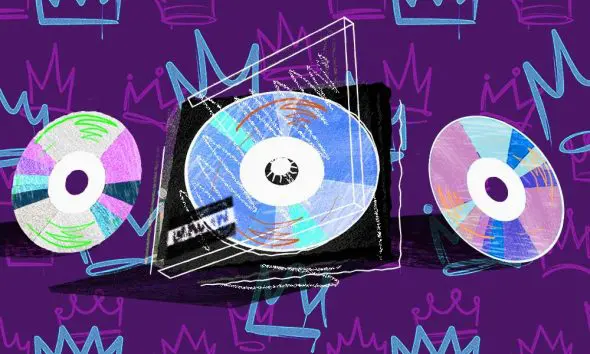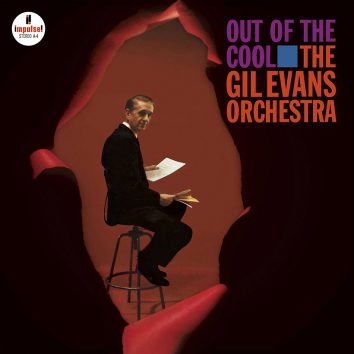Weird Instruments: A Collection Of Strange Music Makers
From Stylophones to pool balls, the world of music is full of weird and strange instruments. Here are just a few.
Weird instruments? Why bother? Indeed, Lou Reed once wrote “you can’t beat two guitars, bass, and drums,” in the liner notes of his 1989 album, New York. Sorry, Lou, but that’s not always the case. Sometimes it takes a weird instrument to push a record into greatness – and Reed ought to know, since The Velvet Underground was probably the first rock band with a viola player. Obviously “strange” or “weird” is a relative term. The viola, by itself, isn’t weird of course. In the context of the rock world back then? Definitely strange. And from Stylophones to pool balls, the world of music is full of memorably odd sounds and incredible instruments. Here’s our overview of some of the weirdest instruments we’ve come across.
Theremin
By 1966, Brian Wilson was no stranger to strange instruments. He’d just used a bicycle horn on The Beach Boys’ Pet Sounds track “You Still Believe in Me,” but outdid himself by making this electronic device a key element of “Good Vibrations.” The 1993 movie Theremin: An Electronic Odyssey, built a real mystique around the instrument, with Wilson honored as one of its pioneers.
Click to load video
Arabesque, Snake Guitars, Electric Larynx, Uncertain Piano
Brian Eno’s instrumental credits are worth a study in themselves, and these were among the many instruments that Eno played on his various solo albums. Only Eno knows what these weird instruments did, but you’d probably miss them if they weren’t there.
Pikasso Guitar
This harp guitar was commissioned by Pat Metheny, who reportedly asked instrument designer Linda Manzer to create a guitar with the most strings possible. The result looks like a Pablo Picasso cubist painting, with 42 strings in four separate sections. – Sam Armstrong
Conundrum
Homemade percussion is another art-rock tradition; those early King Crimson albums were full of unique “percussives.” But percussive chaos was essential to Bone Machine, the 1992 Tom Waits album that took his career into uncharted territory. The conundrum was a rack equipped with all manner of metal junk and machine parts, and the album wouldn’t have been half as unsettling without it. While a friend apparently invented the device, Waits was likely responsible for its punning name.
Click to load video
Ocarina
There was a time when this early woodwind instrument was treasured in Chinese and Japanese culture; in the US it was called a sweet potato. Now it’s forever known as the strange solo instrument in The Troggs’ “Wild Thing.” As far as we know, its only other appearance in the rock canon is in the lyrics of Cream’s “Those Were the Days,” from their 1968 album Wheels Of Fire.
Click to load video
Jaw Harp
Usually a sound effect used in more comical music, The Who gave it a moment of glory in “Join Together,” even making it the lead instrument in the intro. Though the video has Keith Moon and Roger Daltrey miming on the instrument, it was really Pete Townshend playing.
Glass Harmonica
Ever been amazed at the sound of a wine glass? So was Benjamin Franklin, who was so enamored by its harmonious effects, that he went ahead and invented the glass harmonica. Composed of a large number of glass bowls in a row, it’s a weird and beautiful acoustic instrument. – Sam Armstrong
The Serpent
This weird snake-shaped music-maker is a strange wind instrument that is a bit of a hybrid between woodwinds and brass. On the woodwind side, you have sound holes, similar to what you have with a clarinet or bassoon. Like a brass instrument, it has a mouthpiece you blow into, the same as a cornett or tuba (both of which are descendants of this instrument). – Sam Armstrong
Billiard Balls
Often mistaken for simple guitar-bass-drum albums, the early R.E.M. records are full of inventive touches. On the Murmur track “We Walk,” producer Mitch Easter slowed down a recording of billiard balls clanking into one another, making a deep and ominous sound.
Click to load video
Ondes Martenot
A close cousin to the theremin, this late 20s device made a similar spooky sound but was easier to get accurate notes from. One of its main supporters nowadays is Radiohead’s Jonny Greenwood, who used it for some of the unearthly moments on Kid A (notably on “How to Disappear Completely”). This weird instrument has since been embraced by the likes of Gorillaz and Daft Punk, who used it on ‘Touch.”
The Great Stalacpipe Organ
Based in the Luray Caverns in Virginia, this cave organ produces sound by tapping ancient stalactites with rubber mallets. But it’s actually not all that weird of an instrument to play: To produce sound on this giant lithophone, simply hit the keys as you would on a normal organ. – Sam Armstrong
Aphex Aural Exciter
Producer Peter Asher was enamored of this psycho-acoustic device, hence its prominent billing on many Linda Ronstadt and James Taylor albums. What it actually did was to boost frequencies in the mixing process, giving the recording a “hotter” sound.
Hurdy-gurdy
To some extent, Led Zeppelin was always a frustrated folk band. They put the traditional ballad “Gallows Pole” on their third album, and when Page and Plant revived the song for their No Quarter album and tour, the former played the hurdy-gurdy, an early English cranked instrument that produced a bagpipe-like tone. There’s no hurdy-gurdy in the original Zeppelin version, but it is the only Zep song on which Page plays banjo. Bonus irony: according to various rumors, one of the first times the Zeppelin members played together was during the Donovan session for – you guessed it – “Hurdy Gurdy Man.”
Chapman Stick
It looks like a giant fretboard, but it can do so much more: The Chapman Stick was invented in the 1970s and its 10 or 12 strings allow you to play melodies and basslines at the same time. Electronically-inclined? You can also get a synthesizer pickup that will send triggers and MIDI. You can hear the Stick in action throughout King Crimson’s Discipline. – Sam Armstrong
Stylophone
That taking-off-into-space keyboard sound on David Bowie’s “Space Oddity” (the one in the instrumental bridge after the big acoustic guitar riff) wasn’t something keyboard wizard Rick Wakeman came up with. It was Bowie himself on the Stylophone, a weird little music instrument that made a primitive synth-like sound.
Optigan
Like the Stylophone, the Optigan was a short-lived music toy that found new life when resourceful rockers got hold of it. The Optigan had a built-in record player, which took sound samples of strings, horns, and orchestral instruments from flexi discs; you could then play with the tone and pitch of the samples. Ex-Genesis guitarist Steve Hackett was among the first to discover it. “Sentimental Institution,” from his Defector album, is built around an Optigan big-band sound. More famously, Los Lobos got a dreamlike feel from the Optigan loop on the Kiko track “Angels With Dirty Faces.”
Click to load video
Laugh Bag
A popular toy in the early 70s, the “Bag Full Of Laughs” was a little orange pouch that would play a recording of a guy laughing manically when you pressed a button. King Crimson immortalized it – to more sinister effect, of course – at the very end of the Larks Tongues In Aspic track “Easy Money.”
Stritch And Manzello
Jazzman Rahsaan Roland Kirk was a technical marvel, known for his ability to play two or three saxes or flutes at once (and to jam righteously on them all). He also played flute through his nose, and played these two homemade instruments. Both were saxes that he modified, because a normal sax couldn’t make all the sounds he needed.
Claghorn
Not to be outdone, Kirk fan Ian Anderson played this strange, homemade woodwind instrument on Jethro Tull’s first album; you can’t miss its honking tone on “Dharma for One.” Twenty years later, in the booklet for Tull’s anniversary box set, Anderson finally showed fans what it looked like.
Tranceaphone
Invented by Violent Femmes drummer Victor DeLorenzo for their early busking gigs, this was a floor tom with a metal tub mounted on top. Always an eye-grabber onstage, it was a key part of that first classic Femmes album.
Sharpsichord
This huge, Bjork-approved instrument is actually an acoustic 46-stringed harp. How do you play it? Designer Henry Dagg set it up so that you can play it via a pin cylinder, requiring the player(s) to insert pins for each specific note. – Sam Armstrong
Badgermin
The Badgermin is exactly what you think it might be… a stuffed badger mounted onto a theremin. The badger fits neatly into the two antennae of the theremin, but it’s unclear what it actually brings to the table musically. – Sam Armstrong
Vegetables
The Vegetable Orchestra may not have been the first group to play music with food, but they’re certainly among the most celebrated to do so. Each performance sees the group construct their food instruments anew, of course, and after every gig, they make a soup from the leftover material. – Sam Armstrong
The Singing Ringing Tree
This stunning sound sculpture has to be seen to be believed. It’s based in the picturesque Pennines overlooking Burnley, in Lancashire, England, but it looks more like it’s been dropped in from outer space. This epic weird instrument makes sound via wind, as it’s composed of huge steel pipes. – Sam Armstrong
Musical Saw
Often called a singing saw, the strange, ethereal tone of this instrument is both creepy and comforting, depending on the situation. – Sam Armstrong
Zeusaphone
The Zeusaphone goes by many names: Singing Tesla coil, thoramin, or musical lightning. Whatever name you choose to use, this strange instrument looks stunning when it’s at work. – Sam Armstrong
Pyrophone Organ
Also known as a fire/explosion organ, the Pyrophone literally uses extremely fast combustion to produce its sounds. – Sam Armstrong
The 12 Neck Guitar
Japanese artist Yoshihiko Satoh’s art practice is all about showcasing the “unleashed energy” of various common objects. The result is visually incredible, but hardly something that would seriously be played. – Sam Armstrong
Zadar Sea Organ
As you might expect from its name, this strange instrument makes music that is played by the sea. Tubes were put underneath a flight of stairs in Zadar, Croatia, and the waves hitting the tubes produce a beautiful, ethereal sound. – Sam Armstrong
And finally, the oddest credit of all: “Other Instruments.” That’s what founding Cure member Lol Tolhurst officially played on Disintegration, some mysterious thing that wasn’t guitar, bass, drums, vocals, horns, or keyboards. As it later turned out, Tolhurst didn’t appear on the album at all, but hadn’t left the band (yet), so presumably, his existence was still felt.





